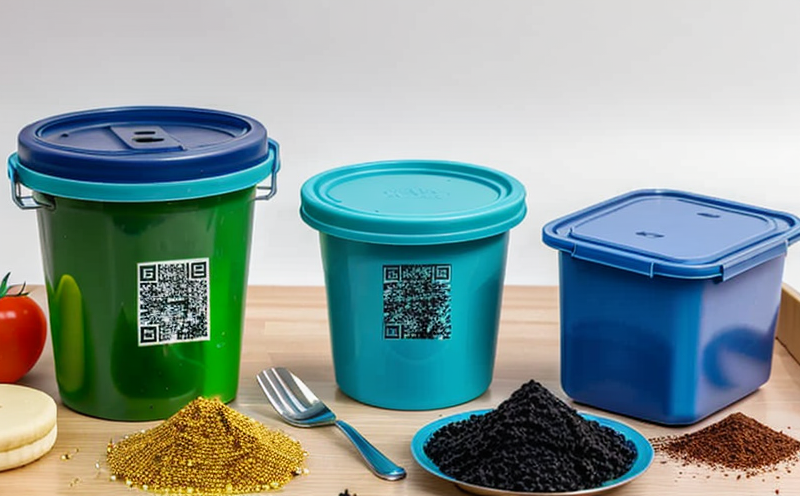Additive residues in food packaging and migration testing
The Hidden Dangers of Additives in Food Packaging Why Migration Testing Matters
As consumers become increasingly health-conscious and environmentally aware, the demand for safer food packaging is on the rise. One critical aspect of ensuring food safety is migration testing, which measures the transfer of additives from packaging materials to foodstuffs. In this article, well delve into the world of additive residues in food packaging and migration testing, exploring its importance, benefits, and how our laboratory service at Eurolab can help your business stay ahead of the curve.
What are Additive Residues in Food Packaging?
Additives are substances intentionally added to food packaging materials to enhance their properties, such as flexibility, durability, or printability. These additives include plastics, adhesives, coatings, and inks, among others. While beneficial in small quantities, excessive levels of these additives can leach into packaged foods, posing potential health risks to consumers.
Why is Migration Testing Essential for Businesses?
Migration testing is a critical step in ensuring the safety and quality of food packaging materials. Here are just a few reasons why businesses should prioritize migration testing
Compliance with Regulatory Requirements Governments worldwide have established strict regulations governing the use of additives in food packaging. Failure to comply can result in costly recalls, fines, and damage to your brand reputation.
Protection of Consumer Health Excessive additive residues can lead to serious health issues, including cancer, reproductive problems, and neurological disorders. By ensuring compliance with regulatory standards, youre safeguarding consumer health and well-being.
Brand Reputation and Trust Companies that prioritize food safety demonstrate a commitment to quality and customer trust. This fosters loyalty, encourages repeat business, and sets your brand apart from competitors.
Reduced Liability Conducting regular migration testing reduces the risk of product recalls, lawsuits, and other financial burdens associated with non-compliance.
Benefits of Using Eurolabs Additive Residues in Food Packaging and Migration Testing Service
Our laboratory service at Eurolab offers a comprehensive range of benefits for businesses, including
Accurate Results Our state-of-the-art equipment and experienced technicians provide precise and reliable test results, ensuring you meet regulatory requirements.
Cost-Effective By detecting potential issues early on, you can avoid costly recalls, fines, and reputation damage. Our service helps you identify areas for improvement, streamlining your quality control processes and reducing waste.
Increased Efficiency We handle all aspects of migration testing, from sample preparation to reporting, freeing up your resources for core business activities.
Expertise and Support Our team of experts provides guidance on regulatory compliance, data interpretation, and corrective actions, ensuring youre always informed and prepared.
Key Benefits of Migration Testing
In addition to the benefits listed above, migration testing offers several key advantages
Identification of Non-Compliant Additives Regular testing helps identify additives that exceed acceptable limits or pose health risks.
Evaluation of Material Compatibility Our service assesses the compatibility of packaging materials with specific food types, minimizing the risk of contamination and ensuring optimal storage conditions.
Detection of Migration Pathways We determine the routes by which additives migrate from packaging to foodstuffs, enabling targeted improvements in your manufacturing processes.
QA Frequently Asked Questions About Additive Residues in Food Packaging and Migration Testing
Q What types of additives are commonly found in food packaging?
A Common additives include plastics (e.g., polyvinyl chloride (PVC), polyethylene (PE), and polypropylene (PP)), adhesives, coatings, and inks.
Q How do I know if my packaging materials comply with regulatory standards?
A Regular migration testing is essential for ensuring compliance. Our laboratory service at Eurolab conducts thorough assessments to determine the presence and levels of additives in your packaging materials.
Q What are the potential health risks associated with excessive additive residues?
A Excessive levels of additives can lead to serious health issues, including cancer, reproductive problems, and neurological disorders.
Q Can I conduct migration testing in-house or do I need a specialized laboratory service?
A While some companies may attempt in-house testing, our experienced technicians and state-of-the-art equipment ensure accurate results and compliance with regulatory standards.
Conclusion
Additive residues in food packaging and migration testing are critical components of ensuring the safety and quality of packaged foods. By prioritizing this aspect of your business, youll not only comply with regulatory requirements but also safeguard consumer health and well-being. Our laboratory service at Eurolab provides a comprehensive range of benefits, including accurate results, cost-effectiveness, increased efficiency, and expert support.
Dont wait until its too late invest in our migration testing service today and protect your business from the risks associated with non-compliance.




